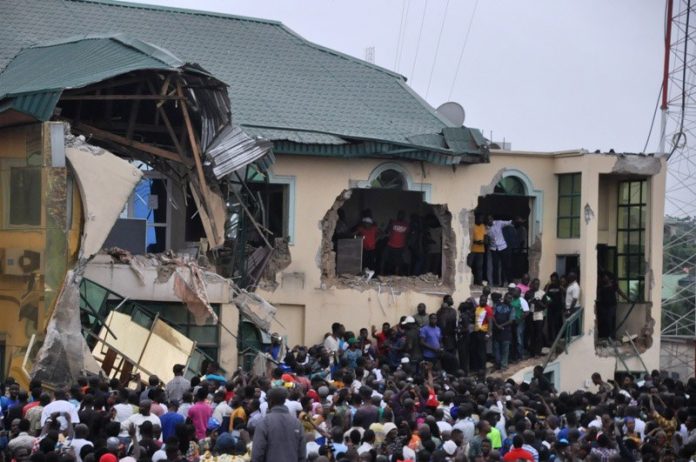On Sunday morning, everyone woke up to the news that the Oyo State Government had partly demolished Yinka Ayefele’s Music House, the building that housed his Fresh FM radio station and which was allegedly worth N800m. Since that incident, there have been accusatory exchanges that have partially illuminated the origins of the dust-up between the government and the singer, Ayefele. People have used the Internet medium to share official documents that showed how much the present government had grown increasingly sensitive to criticisms that emanated from that radio station.
The Oyo State Government officials must be surprised at the depth of disaffection they have dredged up against themselves following that episode. They must be wondering why they were not more careful before moving against a man like Ayefele who is not only admired for his entrepreneurial successes and artistic achievements but also because he overcame a physical and social handicap to make something of himself in a country where upward mobility is not guaranteed for even the abled.
Since Sunday, Oyo State officials have barely succeeded in defending themselves against public opprobrium, with their clumsy defence and self-contradicting narrations even among top government officials. They want us to believe that their action had nothing to do with political animosity, that it’s unrelated to the strident criticism of the government that emanated from Fresh FM, and that their activities are in the service of the agenda to refurbish the Ibadan cityscape.
Here is the thing: Governor Abiola Ajimobi of Oyo State can try all he wants to shake off the accusation that his government pulled down part of that building out of malice. He can even quickly embark on more demolitions this week or next week to prove that pulling down part of Music House was mere routine. If he likes, he can hold a press conference or set his attack dogs on the populace to dispel any thoughts that that demolition was done in good faith. The most important witness whose voice explains the thinking that underwrote the Sunday morning demolition was the voice of the governor himself admitting that he had been told to pull down the Music House structure for malicious reasons.
That admission Ajimobi made, alone, is what matters most when we put together disparate pieces that formed the tapestry of events which culminated in the demolition of that house. That single detail was a moment of self-revelation; it is a selfie shot of Ajimobi’s democratic credentials. No thanks to him, that moment is now Instagrammed into our consciousness as material evidence of how our democracy supposedly works. For those who are wasting time asking if Ayefele too was wrong or not to have located his house at a contentious spot and therefore opened himself up to all of this drama, know that what we are dealing with is less than an illegal act by a citizen than an abuse of power by the state.
In that video where he made those self-incriminating remarks, Ajimobi confessed that in his first term as governor, he had been told to demolish Ayefele’s studio because he -Ayefele, that is- was not on the side of his government. With his own mouth, the governor claimed that he refused to destroy the building then because he believed that with time, he could win Ayefele over to his side. In that recording that took place in the studio, the governor sounded enthusiastic that his plan for establishing a congenial relationship with Ayefele might have worked since both of them could sit in the same place and managed to have a civil conversation. He spoke about how impressed he was with all that Ayefele had put together and his description of Ayefele’s entrepreneurial efforts was quite benevolent. That video was recorded two years ago, well ahead of the Sunday demolition. The retrospective insight into how state mechanisms work is what makes it useful. If Ajimobi knew that a time like this one would come, he would probably have been a bit more cautious with his words. Thankfully, he did not hold back from showing who he was to all.
Despite all the attempts at conciliation with Ayefele, Ajimobi’s words in the studio that day should also have flown a red flag for the discerning. Here was a governor saying that he was told to demolish somebody’s business because the person was not playing to their side. He did not state that he shut down the meddlesome interlopers who hinted that he could destroy Ayefele’s business with any good sense derived from the constitution. Instead, he responded he would withhold judgment on the person to see if the person would defect eventually. At that time, he did not raise any issue about the problem of the location of the studio and why it was expedient -regarding urban planning- to destroy that building.
None of the issues his aides are now claiming as reasons the building was pulled down mattered at that time. The building could remain standing or go down based on its owners’ loyalty to Ajimobi. If Ayefele played to their side, it probably would not matter if he built his house on the highway. If he did not play to their side, it would not matter how much he tried to abide by the law; they will find means of crushing him under the weight of their oppressive power. Ajimobi’s confession means that he uses the instrument of the law to settle political scores that benefit him personally. There was no sense of reflexivity to his admission, no epiphanous moment where he realises that what he was saying reflected his understanding of democracy and its mechanisms, executive powers, and is, in fact, an indictment on the kind of administration he runs. What we see is a government run on whims, rather than a recourse to instruments of the law.
There is always that moment that people reveal who they are through words they casually let out and for Ajimobi, this is not the first time he would give away himself in those kinds of exchanges. We still remember how he handled the LAUTECH students’ agitation with his “constituted authority” responses. On Tuesday, when a reporter questioned Ajimobi about the demolition, his response was even far more appalling. I was mortified when he compared a legitimate investment to robbery. The man can barely help himself. If the way he talked about Ayefele’s investment is the way his mind works and that is the same mind he applies to administrative issues, then we should be worried.
Ajimobi’s self-revelatory moment is, meanwhile, not an isolated case. We are used to politicians pretending they care when in reality they do not. What we are not always prepared for, is their publicly disrobing themselves and admitting that we the people are insignificant in their grand scheme of things. We saw that when the current APC National Chairman, Adams Oshiomhole, told a hapless widow to “go and die” when he was the governor of Edo State. That attitude revealed his state of mind towards the people he governed more than any other cutely drafted speech would ever have said about him. For Ajimobi, loyalty to him and his party must be everything. If you do not kiss his ring and mobilise all the instruments of the media into a propaganda machine for his sake, then you will get what is coming to you. He will deploy the law against you, and when they ask him about it, he will reach for some tawdry excuse to justify crushing you. In a matter of months, Ajimobi will be heading to the Senate. God help us when the man gets there and takes more stock of those who are not loyal to his majesty. We can be sure he will cripple people where it will hurt them.
















